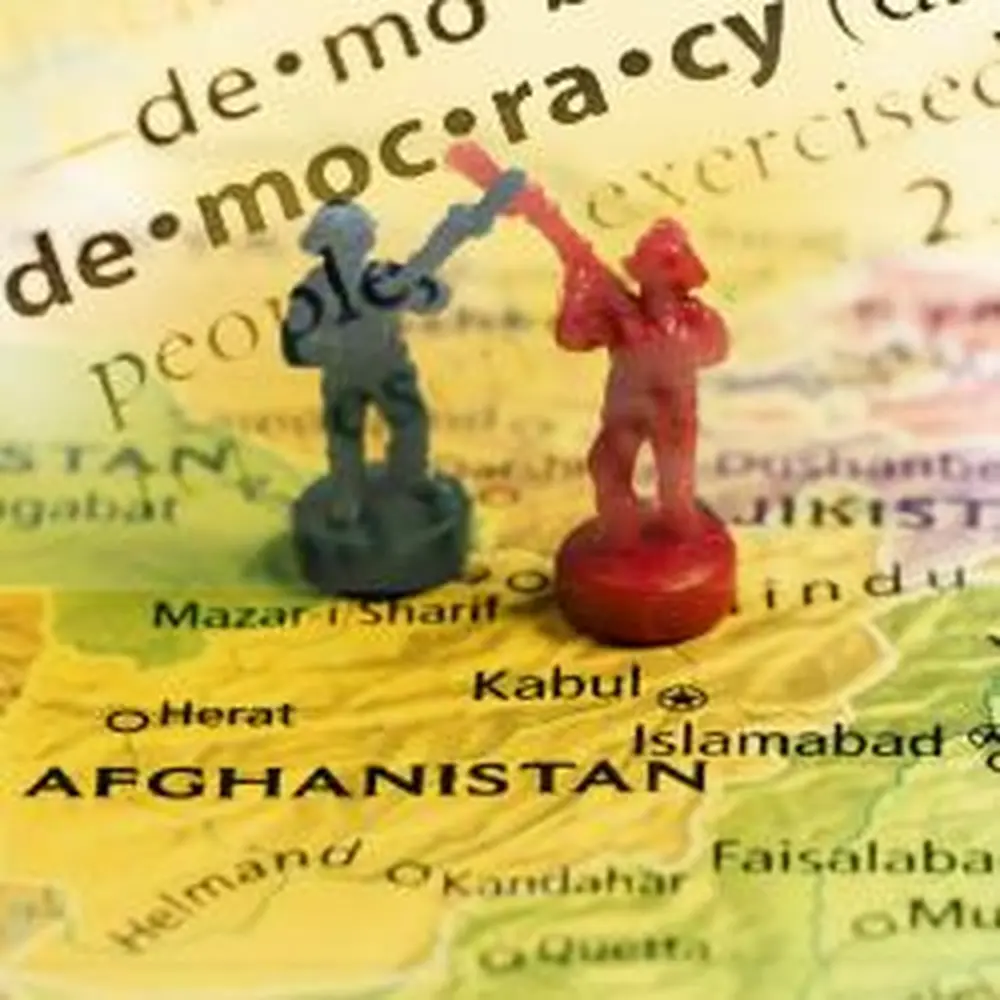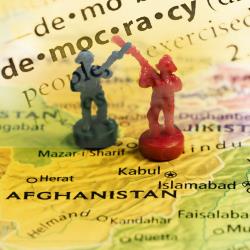

Even if you set aside the drug trade and terrorism, the prospects of democracy taking root in the rugged mountains and plains of Afghanistan are “not good,” according to a U of I political scientist.
Democracies are generally short-lived anyway, with a life expectancy of about 40 years, political scientists say. But Professor José Antonio Cheibub says that in nations as poor as Afghanistan, where per capita income is around $760, democracy is expected to last only five to eight years. What’s more, the nation of 28 million faces a host of other factors that tend to make democracy hard to last, such as ethnic fragmentation, powerful clan and tribe allegiances, a lack of democratic neighbors, a history of colonialism and foreign invaders, and civil war.
“Afghanistan is on the ‘wrong’ side of a long list of things that political scientists have considered to affect democratization,” Cheibub says in an interview with U of I’s News Bureau. “There is not one mitigating aspect that provides a positive outlook.”
His reasoning lies in the nature of power. Elections are a contest for the ability to control how the nation’s income will be distributed, he says. Participants can either abide by the results and settle for shared income, or they can fight to become the dictator and decide alone how it will be distributed. In poor countries, they more often choose to fight.
“This stems from two economic facts,” Cheibub says. “The value of an extra dollar is smaller for those who already have many dollars, and recovery from the physical destruction that comes with fighting is faster in poor than in rich countries. Therefore, in poor countries the value of becoming a dictator is relatively high, and the costs of fighting are relatively low.”
The only viable strategies for democracy in Afghanistan, he says, are promoting civil society organizations, creating and strengthening independent political parties, professionalizing legislative bodies, strengthening the judiciary, helping to administrate elections, and giving funds to non-governmental organizations to train local personnel—even if these activities, themselves, have quite small effects on the chances that a country will democratize.
“Economic development is important, but we cannot wait for it to take place for democracy to be instituted,” Cheibub says. “But while we wait, the country still needs to be governed. And doing a little bit, accepting setbacks but consolidating small gains, is better than nothing.”


